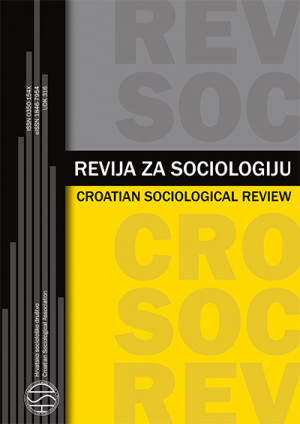Javno mnijenje, radnička klasa i raspad Jugoslavije
Public Opinion, the Working Class and the Dissolution of Yugoslavia
Author(s): Marko GrdešićSubject(s): Social Sciences
Published by: Hrvatsko sociološko društvo
Keywords: Yugoslavia; dissolution of Yugoslavia; public opinion; working class
Summary/Abstract: This study analyses the results of a public opinion survey conducted in all the republics of the former Yugoslavia in 1990, before the first multi-party elections and the outbreak of war. Focus is placed on the attitudes of the working class. Logistic regression models are used to analyse the data for the former Yugoslavia and for three of its politically most influential and economically most developed republics, Slovenia, Croatia and Serbia. It was shown that, although a large majority of the Yugoslav citizens had pro-Yugoslav attitudes, this surface consensus concealed a particular fragmentation of public opinion in general and of the working class in particular. Relative to other social groups, it is only in Croatia that workers stand out in the expressed importance of belonging to Yugoslavia. On the other hand, experts and small-scale private employers, the basis of an emerging economic elite, had weaker attachments to the Yugoslav political community. Finally, a stronger attachment to Yugoslavia was combined with deeper scepticism regarding the transition to a market economy, while a weaker attachment to Yugoslavia was combined with a tendency to support a democratic orientation. Therefore, a pro-Yugoslav orientation was linked to a socialist economic model and far less to democratic values. This made Yugoslav unity even more vulnerable in the context of the crisis of socialism in Eastern Europe and the rise of liberal democracy as the only imaginable political system.
Journal: Revija za sociologiju
- Issue Year: 43/2013
- Issue No: 2
- Page Range: 159-181
- Page Count: 23
- Language: Croatian

